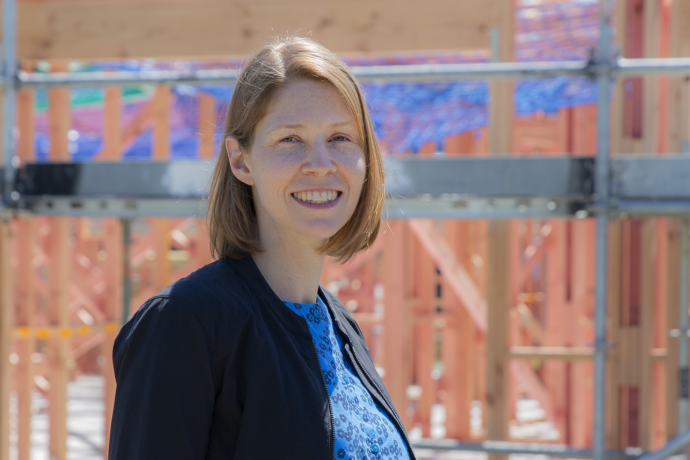Kimberley O'Sullivan

2023: Dr Kimberley O'Sullivan, Te Whare Wānanga o Ōtākou University of Otago, has been awarded a Rutherford Discovery Fellowship for research titled ‘HOusing, energy, and MEntal health and wellbeing (HOME) Programme’.
Published on 27 Whiringa-ā-nuku October 2023
Biography
Graduating with a PhD in 2013 from the University of Otago, Dr O’Sullivan’s early research explored youth experiences of energy poverty (fuel poverty) and determining whether a person feels ‘too hot’, ‘too cold’, or ‘just right’ (thermal comfort) at home and school. Using collaborative research methods that involved young people, Dr O’Sullivan’s work exploring energy use behaviours, energy efficiency of housing and buildings, and the interactions of these with health and wellbeing pioneered energy poverty research in Aotearoa.
Other projects investigated the health and wellbeing impacts of energy poverty among older Māori living with Chronic Obstructive Pulmonary Disease (COPD) and the impact of COVID-19 restrictions on home energy use, and the health outcomes of the government’s Winter Energy Payment. Dr O’Sullivan’s world-leading research and advocacy work has led to collaborations with the Canadian Institutes of Health Research, the International Energy Agency, and the World Health Organization (WHO).
Research summary
Aotearoa New Zealand is facing concurrent crises in the housing, energy, and mental health sectors. Housing quality is critical to people’s health and wellbeing, and power costs play a significant role in determining outcomes. A vicious cycle of increasing power costs and poor health and wellbeing keeps people trapped in financial and health poverty. Although we understand links between housing quality and power poverty, we have yet to discover specifically how these impacts occur – how does cold housing affect mental health and wellbeing? What are the connections between housing, power use, and negative mental health and wellbeing impacts?
With a Rutherford Discovery Fellowship, Dr O’Sullivan aims to tackle these complex questions by establishing the HOusing, energy, MEntal health and wellbeing (HOME) Programme. The HOME programme is designed to enable close collaboration and partnership with Māori and other community and industry partners, and government agencies. Through these collaborations the programme will evaluate the mental health and wellbeing impacts of various interventions such as the Winter Energy Payment (government-led), and the Raukawa Energy Innovation Project (iwi-led). The knowledge generated will provide communities with new understanding of the improvements to mental health and wellbeing that can be made in policy and practice.
Sharing this knowledge will enable the project’s community partners to use these tools to get the greatest mental health gains as well as important environmental benefits. The programme will support students, research participants, and communities to gain and impart knowledge, including mātauranga Māori, in ways that are useful and mana-enhancing – putting the power into the hands of the people.
